
Latest Cold, Flu & Cough News and Research
AHA awards grants to 12 teams for fast-tracked heart and brain health research related to COVID-19
Less than a month after issuing a rapid response call for scientific research proposals for fast-tracked studies of the effects of COVID-19 on the body's cardiovascular and cerebrovascular systems, the American Heart Association has awarded $1.2 million in grants to teams at 12 institutions across the U.S. to begin this unprecedented work.
Researchers outline ways to manage life under COVID-19 pandemic
An international team of researchers has outlined ways to manage different facets of life under the spread of the COVID-19 virus, ranging from how we can combat racially driven bias and fake news to how we can increase cooperation and better manage stress.
Do-it-yourself cheek swab tested as next best thing to detect coronavirus
Coronavirus testing is commonly an unpleasant, even painful experience in which a health care provider pushes a torturously long swab up your nostril. President Donald Trump declared that submitting to the process was "a little bit difficult."
Using Multiplex Assays to Discover Biomarkers for Parkinson’s Disease
In this interview, Dr. Polinski and Dr. Atabakhsh discuss the importance of developing biomarkers for Parkinson’s and the partnership between MJFF and Abcam.
Spike protein analysis from India's first SARS-CoV-2
A new study published on the preprint server bioRxiv analyzes viral spike protein sequences from the severe acute respiratory syndrome coronavirus 2 (SARS-CoV-2) outbreak in West Bengal, India, comparing them with sequences from other Indian states and Wuhan, China.
Pharmacy experts urge caution against use of antimalarial drugs to cure COVID-19
PHARMACY experts at the University of Huddersfield are urging caution over claims that widely-available antimalarial drugs could be a "magic bullet" to prevent and cure COVID-19. And the medicines can - if used rashly - have serious side effects.
Rapid expansion of telemedicine during COVID-19 could transform healthcare in future
A rapid increase in "virtual" visits during the COVID-19 pandemic could transform the way physicians provide care in the United States going forward, according to a new study led by researchers from NYU Grossman School of Medicine.
Study finds new infection route for bacterium that spreads from horses to humans
The researchers' work has made it possible to detail for the first time the spreading of the bacterium through lymph vessels and not just blood vessels, thus being able to invade the digestive system of infected animals through this new route.
Abnormal blood clotting is a major cause of death in COVID-19 patients
A study led by clinician scientists at RCSI University of Medicine and Health Sciences has found that Irish patients admitted to hospital with severe COVID-19 infection are experiencing abnormal blood clotting that contributes to death in some patients.
NIH announces new initiative to speed up COVID-19 testing technologies
The National Institutes of Health today announced a new initiative aimed at speeding innovation, development and commercialization of COVID-19 testing technologies, a pivotal component needed to return to normal during this unprecedented global pandemic.
New physiotherapy guidelines to improve long-term physical function and recovery from COVID-19
New physiotherapy guidelines are targeting COVID-19 patient recovery for respiratory management, exercise and mobilisation in acute hospital wards and Intensive Care Units.
A new model for identifying the most effective treatments for respiratory viral infection
When a person contracts a respiratory viral infection like COVID-19 or influenza, the immune system responds in a myriad of ways to eliminate the virus.
Antibody produced by llamas shows promise against SARS-CoV-2
The hunt for an effective treatment for COVID-19 has led one team of researchers to find an improbable ally for their work: a llama named Winter.
Universal childhood vaccination could prevent antimicrobial resistance
A new study from the University of California, Berkeley, published in the journal Nature in April 2020, reports that extending vaccination to all children could help resolve antimicrobial resistance - one of the biggest obstacles to effective healthcare in low-income countries. This is the first study to look at how vaccination is related to the use of antibiotics in low- and middle-income countries.
Study: 14.4 million U.S. workers face exposure to infection on the job
A University of Washington researcher calculates that 14.4 million workers face exposure to infection once a week and 26.7 million at least once a month in the workplace, pointing to an important population needing protection as the novel coronavirus disease, COVID-19, continues to break out across the U.S.
Testing of hydroxychloroquine for COVID-19 begins at Montefiore And Einstein
Researchers at Montefiore Health System and Albert Einstein College of Medicine have begun testing the drug hydroxychloroquine for the treatment of COVID-19, as part of a nationwide trial sponsored by the National Heart, Lung, and Blood Institute
Arthritis drug assessed as potential treatment for COVID-19-related pneumonia
UC San Diego Health has launched a Phase III clinical trial, part of a global effort, to assess whether a medication used to treat rheumatoid arthritis and other inflammatory disorders might also have therapeutic value for COVID-19 patients who have developed or at high risk of developing serious lung damage from SARS-CoV-2 infections.
Radboudumc researchers find essential mechanism in the disease process of COVID-19
Researchers at the Radboud University Medical Center seem to have found an essential mechanism in the disease process of COVID-19, which has so far been overlooked.
Coronaviruses represent a source of pandemic viruses
In a new paper published on the preprint journal bioRxiv in April 2020, researcher T. Konishi argues that the coronavirus family is a constellation of pandemic pathogens, that includes the currently spreading severe acute respiratory syndrome coronavirus 2 (SARS-CoV-2).
Tobacco use may explain why more men die of coronavirus than women in Spain
Whether or not you are a smoker could condition how the coronavirus affects you. At least that is what numerous researchers are saying, insisting that tobacco use is to blame for the weakened cardiovascular systems which are at greatest risk from COVID-19.

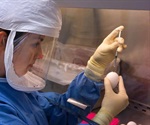
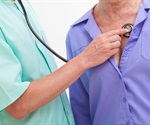

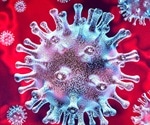


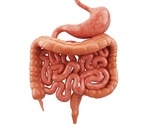





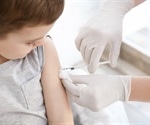

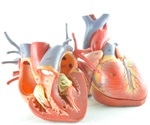


_e81283f385bb479ab7a91b4cd7f3f054-150x125.jpg)

































No hay comentarios:
Publicar un comentario